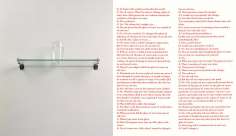Our website uses cookies. By using our website and agreeing to this policy, you consent to our use of cookies in accordance with the terms of this policy.
What are cookies and how do they work?
Cookies are small text files, which contain small amounts of information, that are placed on your device. Your internet browser sends these cookies back to the website every time you visit the site, so the website can recognise your device. A cookie will not access any information other than the information you provide to us when you visit the website.
There are two main types of cookies:
First-party cookies – these are set by the website you are visiting;
Third-party cookies – these are set by other sites or applications.
For more
information about cookies, please visit www.allaboutcookies.org[external
link] or www.aboutcookies.org [external link].
Why do we use cookies?
Cookies are required to provide some of the services and experiences on our website. They are widely used in order to make websites work, or work more efficiently, as well as to provide information to the owners of the site.
We use cookies to tailor what you seeon the screen when you visit our website. We also use cookies with our marketing partners to provide you with tailored information and advertising about London Art Studies as you browse other sites on the internet.
We also use cookies for web analytics purposes, both in-house and with analytics partners (for example Google Analytics), to give us an idea of how you use our website – which pages or functionality you use – so that we can continually improve our website and your user experience.
What types of cookies do we use on our website?
Essential/strictly necessary cookies
Some cookies are essential so that you can move around the website and use its features. Without these cookies, services you've asked for can't be provided. These cookies don't gather information about you that could be used for marketing or remember where you've been on the internet.
Examples of essential cookies: When you add something to an online shopping basket, cookies make sure it's still there when you get to the checkout;
Cookies keep you logged in during your visit; without cookies you might have to log in on every page you go to;
Some are session cookies, which make it possible to navigate through the website smoothly. However, these are automatically deleted after you close your web browser.
Functional cookies
Other cookies are non-essential but important to improving your experience on our website.
Examples of functionality cookies:
Remembering a previous search term, so you don’t have to type it in again;
Remembering if you've filled in a survey, so you're not asked to do it again;
Enabling social media components, like Facebook or Twitter.
Performance cookies (for analytics)
To help us keep our website content relevant and up to date, we like to keep track of which pages and links are not only popular and performing well, but also those that aren’t, so we can make improvements. It's also very useful to be able to identify trends of how people find their way through our site.
Analytics cookies are used to gather this information. The information collected is anonymous and is grouped with the information from everyone else’s cookies. We can then see the overall patterns of usage rather than any one person’s activity. Analytics cookies only record activity on the site you are on and they are only used to improve how a website works.
How to control and delete cookies
If you wish to restrict or block the cookies which are set by our website, or indeed any other website, you can do this through your browser settings. The help function within your browser should tell you how.
Alternatively, you may wish to visit the sites listed at the beginning of this policy which provide information on how to do this on a variety of browsers. On these sites you will also find details about how to delete cookies from your computer as well as more general information about cookies.
For information on how to block or delete cookies on the browser of your mobile phone you may need to refer to your handset manual. Please note, however, that it is not possible to restrict or block essential or strictly necessary cookies.
Please be aware that restricting cookies may impact on the functionality of our website and your user experience. We recommend you leave them turned on. For example, if you block or otherwise reject cookies you will see the cookie message pop-up on every page.















